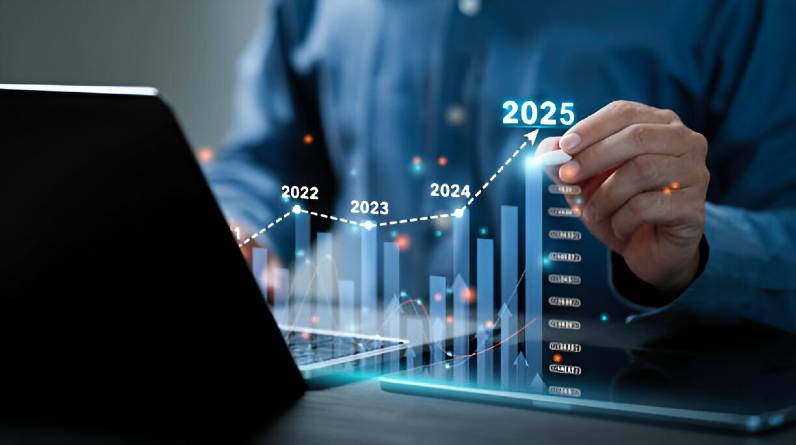
As we approach the midpoint of the decade, the business world is evolving faster than ever before. The convergence of cutting-edge technologies, changing consumer expectations, and global uncertainties is reshaping how organizations of all sizes operate. For entrepreneurs, business leaders, and decision-makers, understanding these shifts isn’t just valuable—it’s essential for long-term success.
This article explores the most impactful business trends in 2025, offering actionable insights rooted in industry expertise, emerging data, and real-world transformation. Whether you’re leading a startup, managing a growing business, or preparing your enterprise for the future, these trends will guide your strategy forward.
1. Generative AI Becomes a Strategic Asset
In recent years, generative AI has made headlines for its innovative potential. In 2025, businesses are finally moving beyond experimentation and integrating AI into core strategic functions. Companies aren’t just adding AI tools to existing processes—they’re reimagining entire business models around AI capabilities.
From personalized product development to dynamic supply chain forecasting, generative AI is enabling smarter decision-making, automation at scale, and hyper-personalized customer experiences. Organizations that strategically adopt generative AI—not just as a tool but as a foundation—are emerging as leaders in efficiency, innovation, and growth.
2. Sustainability and Circular Economies Take Center Stage
Sustainability is no longer optional; it’s a business imperative. Regulatory pressures, resource scarcity, and evolving consumer values are pushing companies to adopt environmentally responsible practices.
The rise of the circular economy—where waste is minimized and resources are reused—reflects a deeper transformation. Companies that design products for reuse, embrace clean energy, and invest in transparent supply chains are not only reducing costs but also earning customer trust and loyalty.
Sustainable businesses are proving that doing good for the planet can also be good for the bottom line.
3. Intelligent Enterprises Through Hyperautomation
The intelligent enterprise is no longer a future vision—it’s becoming a reality in 2025. With hyperautomation, businesses are seamlessly connecting every department through integrated AI, real-time data flows, and smart algorithms.
This trend enables companies to anticipate customer needs, optimize operations, and pivot quickly in response to changing market conditions. Combined with AI-powered labor automation, businesses are now capable of handling both knowledge work and physical tasks more efficiently than ever before.
The result? A smarter, more resilient, and more responsive organization ready for the challenges of tomorrow.
4. Customer Experience Is the Competitive Edge
Today’s consumers expect more than just quality and price—they expect personalized, frictionless, and meaningful experiences. In 2025, customer experience (CX) is the defining factor that sets brands apart.
Thanks to AI and advanced data analytics, companies can now deliver real-time, hyper-personalized interactions across every channel. Omnichannel strategies are becoming more refined, creating seamless transitions between digital and physical experiences.
Brands that place customer experience at the heart of their strategy are building lasting relationships and standing out in crowded markets.
5. Agility and Resilience in a Volatile World
In an era marked by geopolitical instability, economic uncertainty, and rapid technological change, business resilience has become a core capability. Companies must build systems that can pivot quickly, respond to unexpected disruptions, and continue delivering value under pressure.
This means investing in flexible supply chains, agile workforce strategies, and robust risk management frameworks. Technology, especially AI, plays a key role by providing predictive insights and enabling smarter responses to crises.
Organizations that embed resilience into their culture and operations are better equipped to navigate uncertainty and thrive long term.
6. Remote Work, Flexibility, and the Evolving Workplace
Remote and hybrid work models continue to define modern business. Empowered by digital tools and collaborative platforms, businesses are building decentralized yet connected teams that value flexibility, inclusivity, and autonomy.
As the war for talent intensifies, offering flexible work arrangements is no longer a perk—it’s a necessity. Companies are restructuring operations, rethinking workplace culture, and embracing global talent pools to stay competitive.
7. E-commerce Innovation and Immersive Shopping
E-commerce growth shows no sign of slowing. In fact, 2025 is seeing a wave of innovation fueled by augmented reality (AR) and virtual reality (VR). These technologies allow customers to interact with products virtually, offering an immersive shopping experience that bridges the gap between digital and physical retail.
Businesses that embrace e-commerce and immersive tech are better positioned to engage digital-native consumers, expand their reach, and boost conversions.
8. Entrepreneurial Growth and Self-Reliance
The spirit of entrepreneurship is stronger than ever. As more individuals seek independence, passion-driven careers, and economic self-sufficiency, entrepreneurship is fueling innovation, job creation, and market disruption.
From side hustles to tech startups, today’s entrepreneurs are leveraging digital tools, social media, and AI to turn ideas into scalable businesses. This trend is reshaping labor markets and inspiring a culture of resilience and innovation.
9. Social Media and Influencer Marketing Evolution
Social media has matured into a powerful marketing engine, especially for small and medium-sized businesses. In 2025, influencer marketing is becoming more data-driven, strategic, and ROI-focused.
Platforms like TikTok, Instagram, and LinkedIn are offering businesses new ways to connect with niche audiences, humanize their brands, and boost conversions. Influencers are not just promotional tools—they’re partners in building authentic relationships with customers.
10. AI, Mobile Optimization, and Marketing Technology
AI continues to transform marketing. With predictive analytics, voice search, and automated campaign management, marketers can now deliver personalized, relevant content with pinpoint accuracy.
Mobile-first advertising is also critical, as consumers increasingly rely on smartphones for browsing and buying. Businesses must optimize websites, ads, and communications for mobile engagement, or risk losing attention in a competitive digital space.
Conclusion: Staying Ahead Requires Strategy, Agility, and People-First Thinking
In 2025, successful businesses aren’t those that simply follow trends—they’re the ones that adapt early, think strategically, and prioritize people. Whether it’s using AI to drive personalization, adopting sustainable practices, or building resilient operations, the path forward requires foresight, flexibility, and a commitment to value.
By staying informed, acting on insights, and putting customers and employees at the center of decision-making, today’s leaders can future-proof their organizations and thrive in an increasingly complex business environment.






